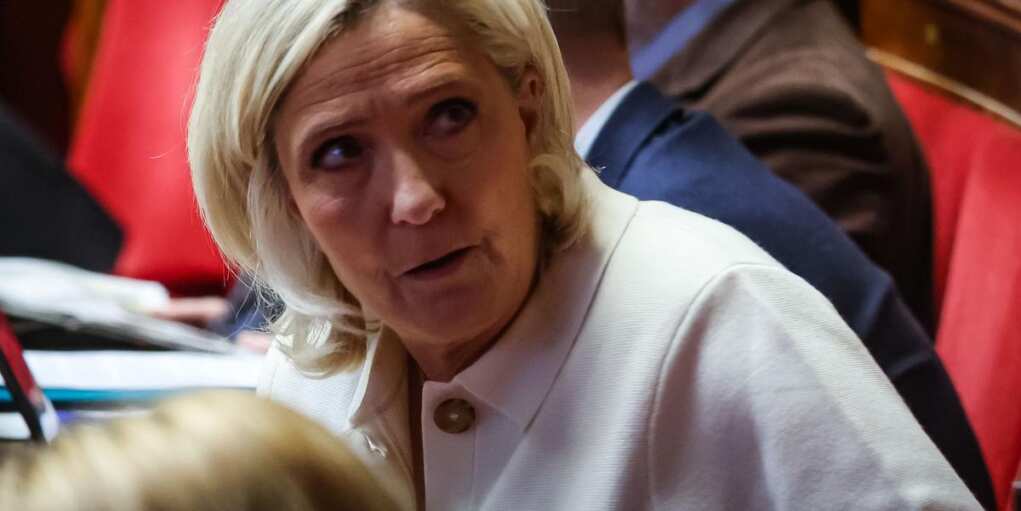Banned from the Ballot, Le Pen Vows to Fight On

Marine Le Pen is not going quietly.
The leader of France’s populist National Rally party vowed to keep fighting after a court ruling banned her from running in elections for five years, including the pivotal 2027 presidential contest, where she was the clear front-runner.
On Sunday, an estimated 10,000 supporters filled the streets of Paris, rallying at Place Vauban — just steps from Napoleon’s tomb — to protest the controversial decision that Le Pen has decried as a political hit job.
“Everyone, be reassured: I won’t give up,” she told the crowd, adding that the movement now transcends politics, calling it “a fight for civil rights” and vowing peaceful resistance inspired by Martin Luther King Jr.
The ban stems from charges that Le Pen misused nearly $5 million in EU funds for parliamentary aides — a ruling that sparked outrage across the political spectrum and which Le Pen is actively appealing.
But the protest wasn’t just about legalities. It was a moment of reckoning for a growing nationalist movement that sees itself under siege by a left-leaning political establishment desperate to cling to power.
“The persecution of opponents, the criminalization of dissent — this is the strategy to crush democratic opposition and protect the elites,” Le Pen warned, adding that her opponents are driving France toward “chaos.”
National Rally President Jordan Bardella, considered Le Pen’s likely successor, echoed her defiance: “They wanted to turn off a voice, but they woke up the people of France.” He called for continued resistance to “reconquer sovereignty, defend identity, and preserve unity.”
The demonstrations come at a time of deep political unrest in France, as support for Le Pen’s populist platform — anti-globalism, strong national identity, tough immigration controls — has surged, especially among working-class voters.
While the protest in Place Vauban drew thousands, a smaller counter-demonstration gathered at Place de la République, where leftist groups chanted slogans comparing Le Pen to U.S. President Donald Trump and demanded her “in the dungeon.” Some protestors waved Palestinian flags — a now-typical display at far-left rallies in France.
But the left’s turnout was underwhelming. Even major socialist and communist parties refused to participate, wary of stoking sympathy for Le Pen.
That didn’t stop Manuel Bompard of the radical France Unbowed party from showing up to denounce the National Rally as “dangerous for democracy.” Ironically, his comments came as courts and unelected bureaucrats interfere in a democratic election process to silence the most popular opposition candidate.
“The far right is a violent party,” Bompard claimed. “They threaten judges when they don’t like the verdicts.” He also called for mass demonstrations on May 1st — May Day — a date often marked by leftist riots and street violence across the country.
But Le Pen is turning the tables, casting her campaign’s suppression as the real threat to democracy.
“We do not contest justice,” she said, “but we demand that these deviations unworthy of democracy stop.”
As the dust settles, it’s clear this court decision has only intensified France’s political earthquake. The populist movement is more energized than ever, and Le Pen’s defiant stance has transformed her into a martyr of sorts — a symbol of resistance to the political machine many French voters have come to despise.
Whether or not she appears on the 2027 ballot, Marine Le Pen isn’t disappearing from the political stage — and the movement she leads just got louder.

